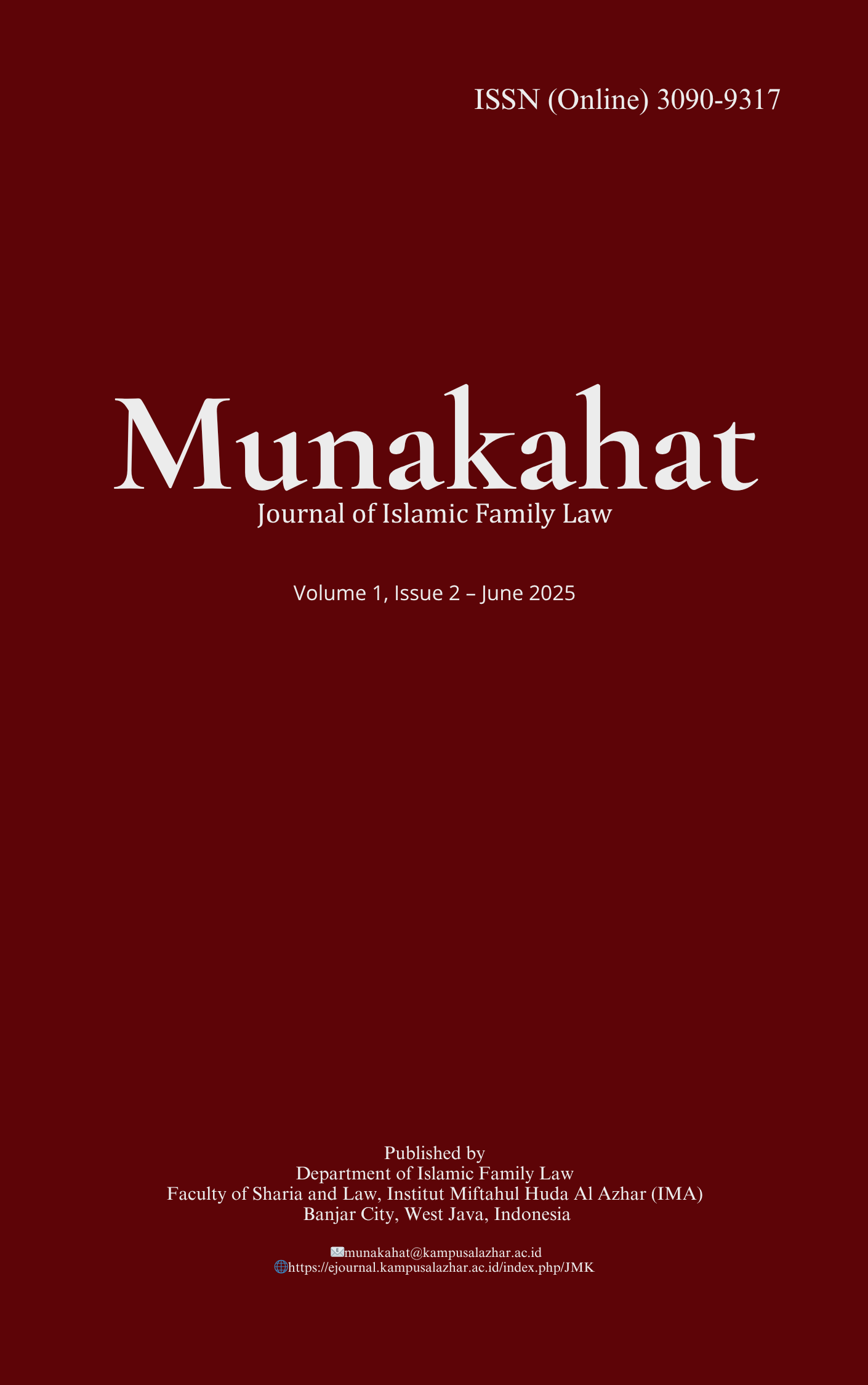Integrating Rukyatul Hilal Practices and Islamic Family Law: Case Study in Banjar City, Indonesia
Published 2025-06-27
Keywords
- Rukyatul hilal, Islamic family law, lunar calendar, moon sighting, legal pluralism
How to Cite
Abstract
Background: The determination of the Islamic lunar calendar through rukyatul hilal (moon sighting) plays a crucial role in regulating Islamic rituals and family law matters such as marriage and inheritance. Although astronomical calculations have advanced, traditional moon sighting remains prevalent, particularly in Indonesian Muslim communities like Banjar City, West Java. However, limited studies have critically examined how these practices affect the legal certainty and enforcement of Islamic family law.
Methods: This qualitative study combines document analysis of religious texts and scientific literature with field observations and in-depth interviews conducted between 2023 and 2024 involving religious authorities, community leaders, and family law practitioners in Banjar City. The study applies frameworks from usul al-fiqh and legal pluralism to analyze the integration of rukyatul hilal with family law enforcement.
Results: The findings reveal a coexistence of traditional moon sighting and astronomical methods within the community, with diverse levels of acceptance. This plurality generates both legal ambiguities and opportunities for inclusive family law practices. The study further identifies gaps in data validation and consistency in terminology that affect legal clarity.
Discussion: The research highlights ongoing tensions between tradition and science in determining lunar months, which directly influence the legitimacy and timing of family law rulings. It argues for enhanced harmonization of rukyat and hisab methods, supported by public education and improved documentation, to foster community compliance and legal certainty.
Conclusion: Integrating rukyatul hilal with modern astronomical calculations can strengthen the fairness and clarity of Islamic family law enforcement. Collaborative efforts among religious scholars, scientists, and legal experts are recommended to develop a standardized and contextually relevant approach.
Novelty: This study contributes uniquely by addressing the gap in research on the practical implications of moon sighting practices on Islamic family law enforcement in Banjar City, emphasizing the potential for harmonizing traditional and scientific methods in a modern Muslim society.

